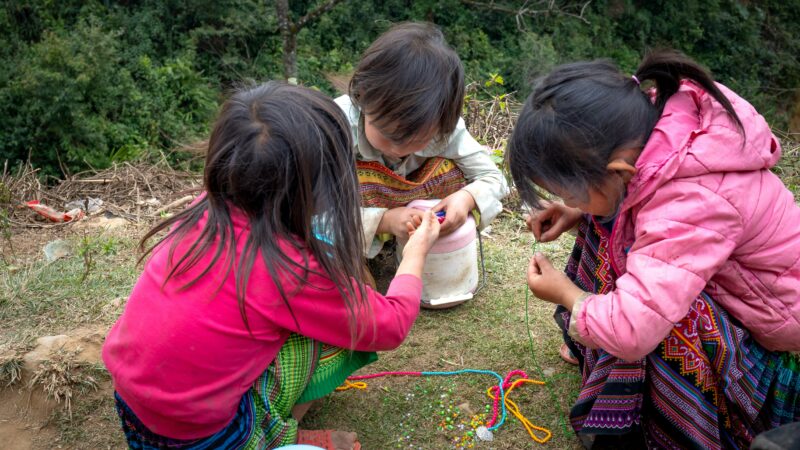Anya* and Mia*, both specialists in special education, work directly with families of children with disabilities on the Nune field.
For the past few years, they have provided physical therapy, special needs education and consulting to families. Their ministry addresses the cultural and practical challenges that leave many families isolated from the rest of the community.
“Here, if you can’t walk up the stairs by yourself to go to school, you won’t go to school,” Mia said, describing the lack of handicap accessible facilities in the area.
In this honor-shame culture, families often conceal children with disabilities from larger society, believing the disability is a result of some sin or parental fault.
The cultural context proves especially difficult for mothers, who often feel shamed for their children’s disabilities.
“The first thing we tell these mothers is ‘it’s not your fault,’” Mia said. She frequently shares the biblical story from John 9, where Jesus explains that a man’s blindness occurred not because this man or his parents sinned, but so that the works of God might be displayed in him.
The Nune area has a majority Muslim population, and while Jesus is not accepted as the son of God, he is still acknowledged as a great prophet and teacher.
“This story often leaves the mothers in tears because of their relief that the child’s disability is not their fault,” Mia said.
The region faces additional challenges including inadequate medical diagnostics, corruption and lack of adaptive equipment and government support. Multiple ethnic groups and languages also complicate the delivery of medical services.
Despite these obstacles, the missionaries have found opportunities to serve. For example, Mia assisted in starting a summer camp for disabled individuals aged 15-30, serving approximately 30 participants from around the city. The camp provides a safe space for people with disabilities to meet, fellowship and even occasionally share testimonies.
Mia recounted difficulties that previous missionaries in the area have faced when trying to connect with families, “In the past it’s been hard to find a way into people’s homes … It’s definitely God who opens each of those doors.”
Anya recently launched an eight-week playgroup that brought together six mothers and children— three with disabilities and three without — representing different ethnic groups. The program included structured activities, parenting education and an emphasis on intentional playtime between mother and child.
“The idea of including children of mixed ability is NOT done here,” Anya said, acknowledging the cultural significance of the play groups’ approach.
The playgroup yielded encouraging results. Children didn’t want to leave sessions, and mothers reported behavioral improvements at home. One mother’s older son noticed positive changes in how she interacted with her children after attending the program.
“Your group actually cares about us,” participants told Anya, “Other groups do things for us but we know you actually care.”
The ministry plans to gather participant feedback and adapt future programming based on the first group’s experience.
“Those who are regarded as last will be first,” Anya said, citing 1 Corinthians 12:22: “Those parts of the [church] body that seem to be weaker are indispensable.”
Anya and Mia’s work continues as they break through cultural and ethnic barriers, teaching families and children that even those with disabilities “are treasured in his eyes”.
To learn how you and your church can also minister to disabled individuals in your community, consider attending the Disability and the Church conference, April 21-23, 2026.
William Cheney is a Global Partners Communication intern.
*Names changed due to security guidelines.
**Nune is a pseudonym for a country in the Global Partners Turkic-Arabic Area.

